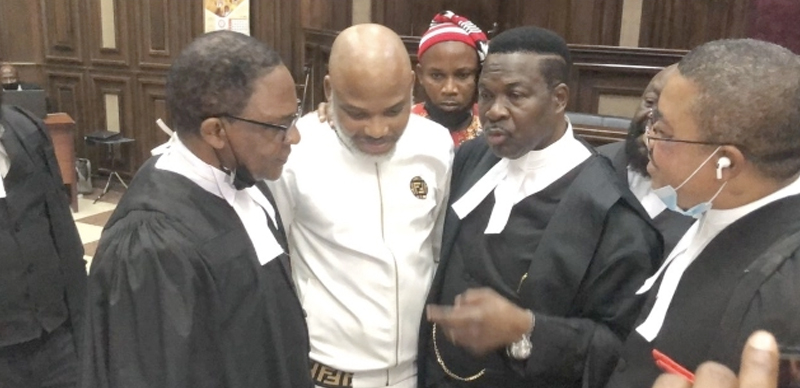The ongoing trial of Nnamdi Kanu, leader of the Indigenous People of Biafra (IPOB), has seen three judges withdraw from the case, sparking concerns over fairness in the legal process.
Kanu, who has been facing charges since 2015, including treasonable felony and terrorism, has seen his trial linger with multiple delays.
Kanu was granted bail in 2017 but fled Nigeria following a military invasion of his residence in Abia State. He was rearrested in Kenya in 2021 through extraordinary rendition and brought back to Nigeria to face fresh terrorism charges. While the Court of Appeal acquitted him in 2022, citing illegal rendition, the Supreme Court ordered his trial to continue.
The withdrawal of three judges, including Justice Binta Nyako in 2024, has highlighted challenges within the judiciary. Kanu’s lawyer, Aloy Ejimakor, claims that the recusal of judges reflects the judiciary’s struggle to deliver a fair verdict. He also emphasised that Kanu’s detention at the Department of State Services (DSS) violates his rights and hampers his legal defence.
Ejimakor and activist lawyer Madubuachi Idam advocate for a fair and speedy trial to resolve the prolonged legal battle. Idam also suggested that the government should consider discontinuing the trial to ease tensions and explore a political solution.
The ongoing trial has reignited debates on the role of the judiciary and the need for a political resolution to the case, with some suggesting that President Bola Tinubu might consider a political solution to address the situation.



